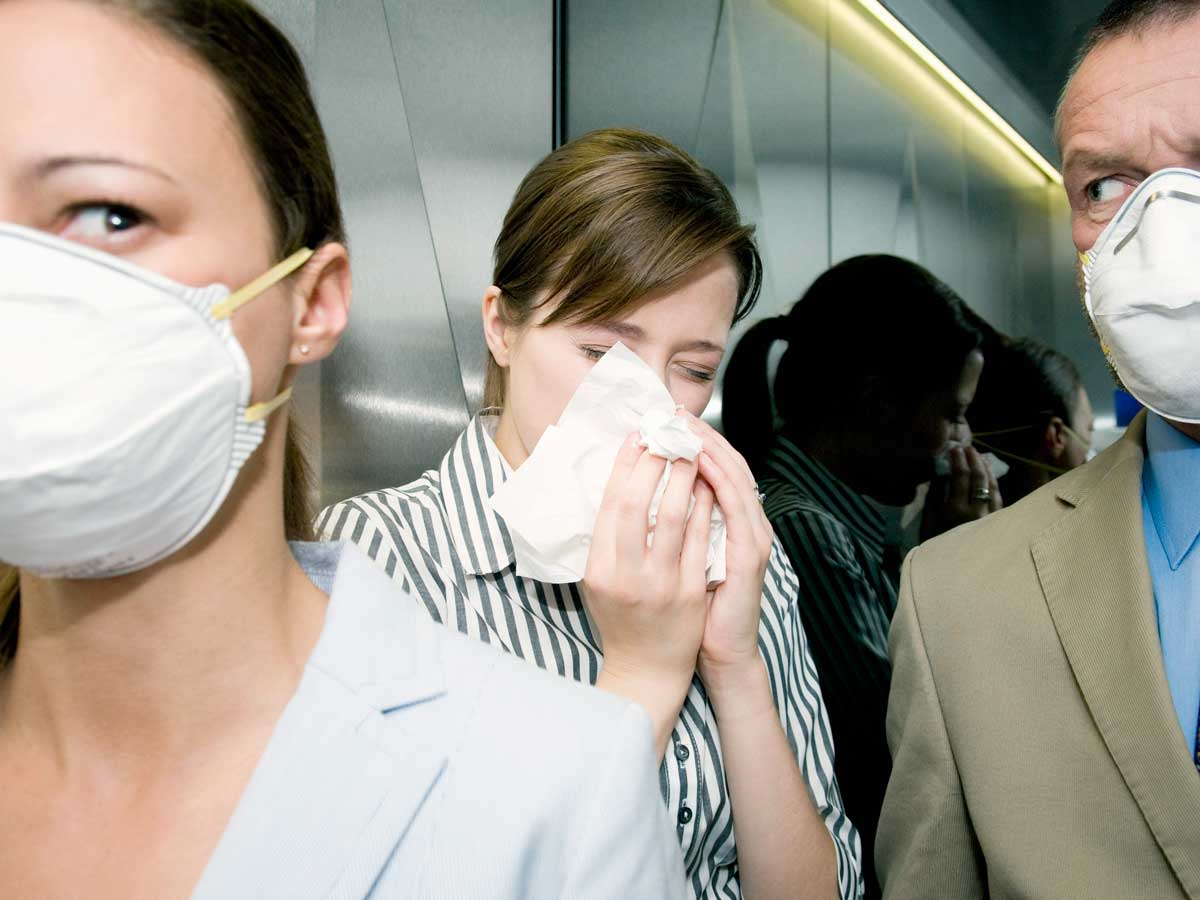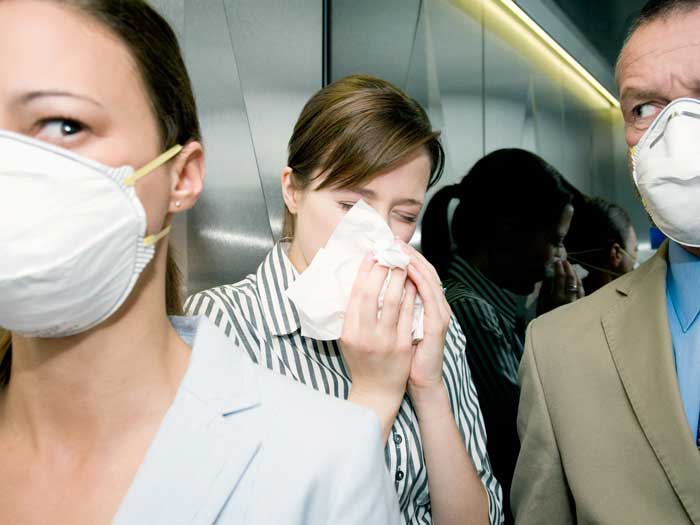
Feeling ill? Stay away from the office
 Strict screening will keep employees away from work with even mild illnesses (Getty Images/Simon Potter)
Strict screening will keep employees away from work with even mild illnesses (Getty Images/Simon Potter)
As workplaces consider their policies ahead of welcoming employees back into offices, a great deal of focus will be put towards supporting those with COVID-19 symptoms to self-isolate at home.
Self-isolating has been vital to all those with possible symptoms—but it will be even more crucial in the workplace, where crowded offices could make the coronavirus exceptionally contagious.
“Employers, workers, owners, prime contractors and other people at the workplace all have a responsibility to prevent exposure to COVID-19 in the workplace,” said WorkSafeBC in a statement to CPA Canada. “Staying home when sick is very important to stop the spread of COVID-19.”
NO SYMPTOM TOO MILD
The Public Health Agency of Canada outlines the symptoms that have been most commonly associated with COVID-19. But the broad list has been revised over time, with new symptoms added, such as sore throat, runny nose and headaches. This may lead some employees to wonder when to stay away from the office.
“For the foreseeable future, people are going to err on the side of caution,” says CPA Shali Virdi, senior manager, consulting and deals, at PwC in Toronto. Virdi’s team, called Workforce of the Future, looks at transformational change in the workplace and managing the people side of those changes.
“What I’m hearing from clients is that even if you have the sniffles, you’re probably not going to go into work,” she says.
The bar of what’s considered potentially sick is changing due to COVID-19. And, as people might still be scared to go back into work, Virdi says organizations must implement changes to keep people comfortable and safe. That includes measures of screening recommended by health agencies. Ottawa Public Health, for example, developed a screening questionnaire for businesses, recommending staff self-assess for COVID-19 symptoms before starting each work shift.
At PwC, Virdi says some employees may need to sign a return-to-work form, stating they agree to abide by defined guidelines to maintain the health and safety of other employees and clients. But employers can go even further than simply expecting self-certification. When Toyota Motor Manufacturing Canada re-opened its plants in Ontario, employees were scanned by a thermal- imaging camera to detect for fever.
SHIFTING OUTLOOK
Calling in sick will be different now, admits Virdi. Not only is the bar lower, but employers understand the threat of COVID-19 in the workplace.
The attitude has even been changing at the highest levels of government. In May, the Prime Minister announced an intent for a new measure during the post-pandemic recovery period to provide 10 days of paid sick leave for workers across the country, in part so that people don’t hide their symptoms in the workplace.
The sudden transition many organizations made to remote work also means that many employees don’t need to take a sick day to work from home now. But Virdi, who works with clients in the energy and utilities industry, points out that that won’t apply to many workers who are out in the field. Organizations will have to really examine people’s work and tasks and determine what can be still be done virtually, she says.
“The conversations we’re having with organizations are around how you keep people productive while they’re at home,” Virdi says. “What is that policy from the HR perspective? If I have the sniffles, that doesn’t mean I’m going to take 14 days of sick days. You may still be able to be productive. I think that might help shift culture.”
MORE COVID-19 UPDATES
Learn about best practices to adopt before reopening your workplace and coping with the effects of COVID-19, including survival tips for small businesses as well as how to pivot your business and ensure continuity.
In addition, stay up-to-date with the latest COVID-19 tax updates and news related to the accounting profession, including a compilation of external resources and online news articles.